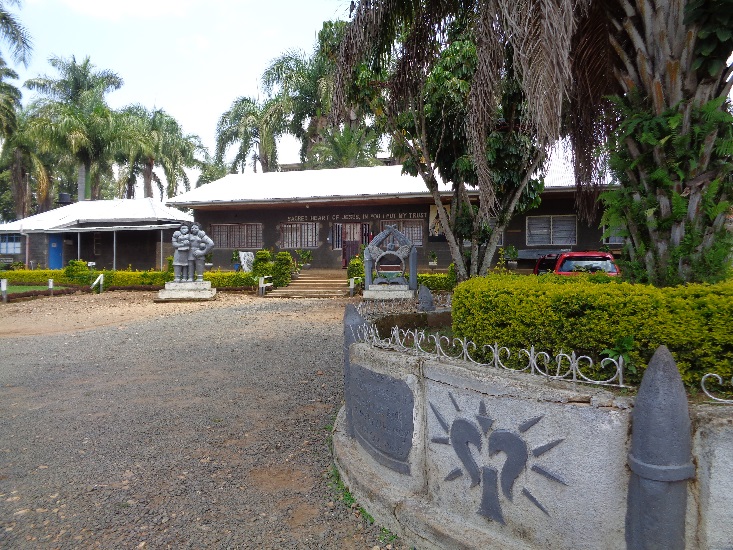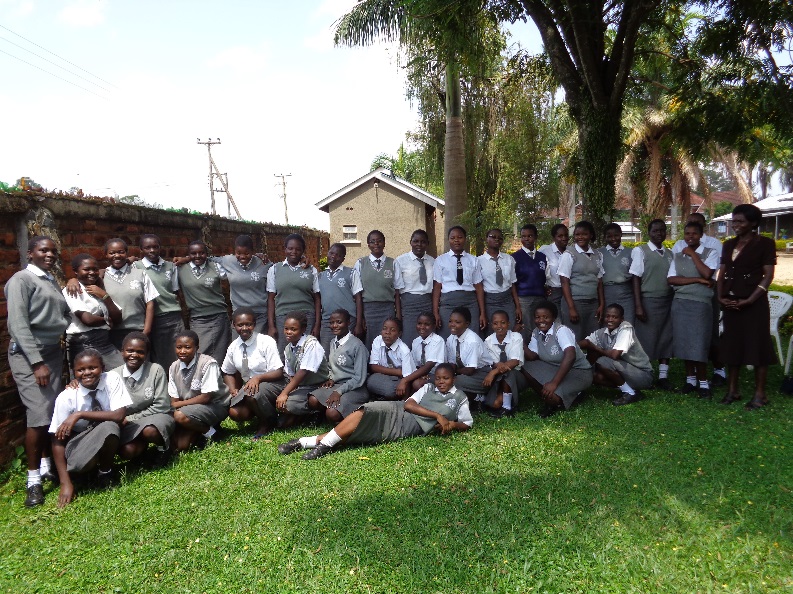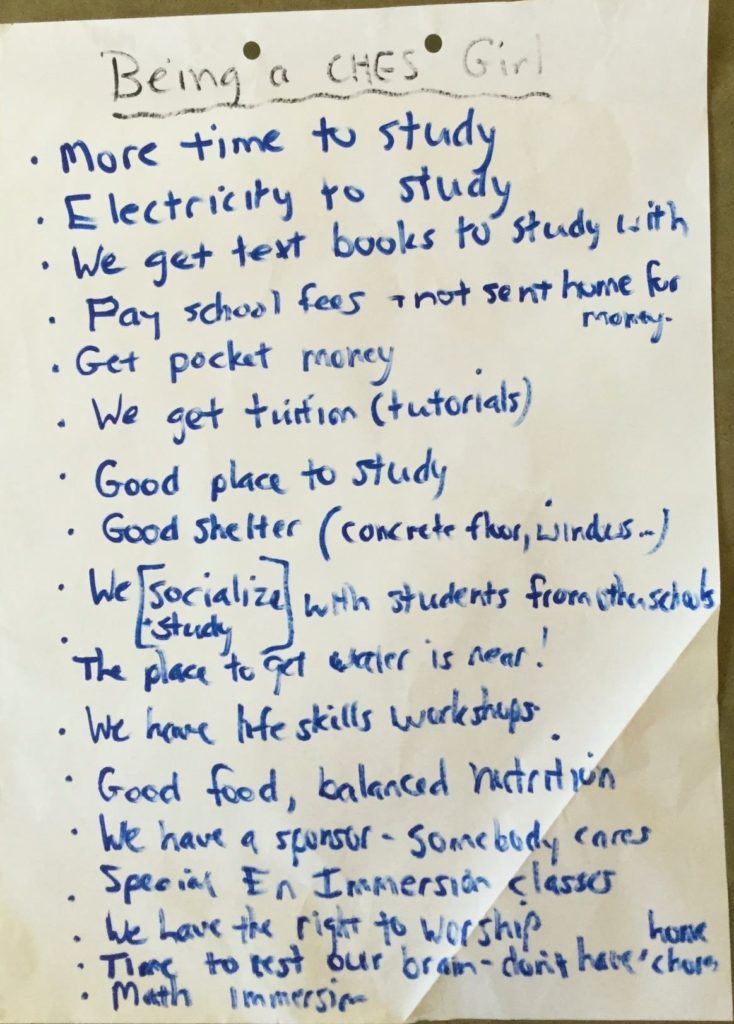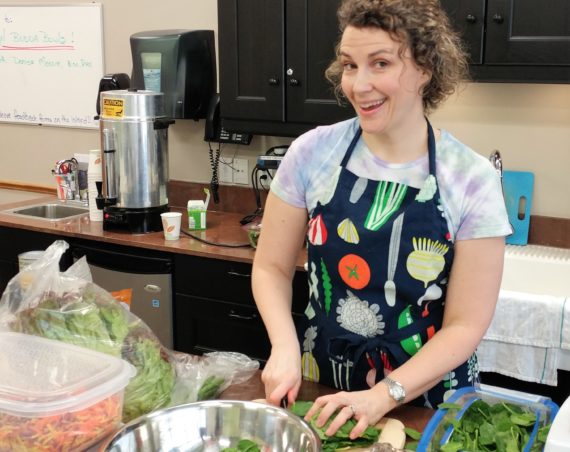This past year, I was reading about how the education of certain girls in Kenya ends in primary school. Many families, particularly in rural areas, cannot afford the school fees, which can exceed the total annual income of a family. If a family has sons, they will often only choose to support the son as opposed to the daughter. A non-profit organization called the Canadian Harambee Education Society (CHES), based in Canada, is helping change this by providing scholarships to female students in Kenya and Tanzania who meet certain requirements. Harambee is Swahili for “pull together”.
This is the second story in a series that profiles Wehl’s support of initiatives that “spread good” by giving back. Not only do we want to inspire wellness, both online and offline, among ourselves and others but we also want to be ambassadors of good, locally and internationally. Our first story can be found here.

As part of our second “spread good” initiative, Wehl is excited to fund the education of Anifa, a Kenyan girl at The Sacred Heart Mukumu Girls High School, through CHES! In keeping with our goal to support different kinds of wehlness, both locally and internationally, this sponsorship particularly supports mind and social wehlness, providing an excellent foundation for a girl’s future!

We connected with two of the CHES directors, Catriona and Chris Harker, to understand more about how CHES supports the wellness and education of Kenyan girls.
WEHL: How does sponsorship through CHES impact the lives of girls who wouldn’t otherwise be able to attend The Sacred Heart Mukumu Girls High School?
CCH: The simple answer is if our girls don’t get scholarships to attend Mukumu or other Secondary Schools in Kenya and Tanzania, their education would end at the end of Elementary School. They all come from traditional impoverished and subsistence families or from those who have had tragic times economically because of the deaths or illnesses of one or two parents. Most of the families are polygamous and often when tragedy befalls them, women are left with several children and not the means to feed or clothe them properly, never mind providing them with health care or a secondary education.
Their homes do not have electricity or running water and the distance to the nearest well or standing pipe can be very far. Night falls shortly after 6 because of the latitude so dim candles light their evenings.
If the girls were left unsupported by us or other charitable organizations, a girl could either die young or continue in the cycle of poverty, one of many wives or abandoned women with too many children for whom to provide properly. The positive results of equal Secondary Education for girls span economics, health, welfare and the emotional health of people from every aspect of society.
In both Tanzania and Kenya many of our CHES girls go on to higher education and ultimately find jobs and professions in all walks of life. Some are involved in government policies, others in business, science, medicine, teaching etc. But we also have girls who just pass or finish school with minimum marks. We have found, however, that the lives of these girls although they have less “bragable” careers, when we visit them, we find that they too have benefited immensely. When they marry, they have cleaner more sanitary homes, one husband and fewer, healthier, educated children. They also help to support surviving parents, educate siblings or cousins, continue educating themselves personally, contribute to decision making in their local villages and through entrepreneurial endeavours contribute financially to their own family’s survival.
To qualify for a CHES sponsorship, there are three requirements:
- You must be female.
- You must have graduated from primary school in Kenya or Tanzania with marks high enough to qualify for secondary school admission.
- Most importantly, you must come from a family that does not have the resources to cover the cost of Secondary school for four years.
Although Kenya and Tanzania governments have recently proudly announced that they have dispensed with or lowered secondary school fees, money to run the schools has not been forthcoming so “unofficial fees” are charged by the schools and local village councils.
Because our girls come from very poor families, as well as paying for school fees, CHES provides for other costs such as boarding fees, school lunches in non-boarding schools, school uniforms, text books, and travel costs to and from school. They also receive “Pocket Money” each term to buy school supplies and basic personal needs such as hygiene products, soap, toothpaste etc.

WEHL: How does sponsorship support the wellness of sponsored students?
CCH: A girl who comes from a simple subsistence background to a school where children from better homes form the majority, is exposed to a lifestyle to which she learns to adapt. Manners, vocabulary and poise are enhanced. She enjoys better food, clean water, proper clothes and has overall a healthier and more hygienic lifestyle – to which she also adjusts. Schools impose routine, structure and discipline; although these might not be appreciated at the time, they are remembered and employed later.
Once a year, CHES provides the Kenyan girls with a workshop at which topics such as female empowerment, female health, HIV Aids awareness, assertiveness training, study skills and advice on how to deal with future relationships are offered. In Tanzania the standard of teachers and educational resources is lower so we also provide annual tutorials in all academic subjects. The girls at the top of the exam result lists over the past few years are all CHES girls.
CHES grads in both Tanzania and Kenya are recognised in their local communities as being noticeably more poised, self-assured and confident than most of their peers. Their Motto in Tanzania is “Tuna Sauti” which is Swahili for “We have a Voice”.
As the people most directly able to answer the questions you have posed are the girls themselves, we have included as an attachment, a photo of a list of items brainstormed by our Tanzanian girls in answer to the question, “What is the advantage of being a CHES girl?” Note the one, “We have a Sponsor, someone cares”.
There is one more very important thing that girls derive from having a CHES Scholarship and that is that when/if she gets ill or has an accident, we make sure her hospital/doctor/pharmacy costs are covered. Often a family finds some money for this but mostly they can only contribute a little or nothing. Girls without this support either drop out of school or have huge absences. Also by providing hygiene products, girls don’t have to miss school for several days each month.
To learn more about the inspiration for starting CHES and the amazing work CHES does, here’s an excellent CBC video to check out:
We invite you to join our all-in-one healthy lifestyle app at Wehl.com!


